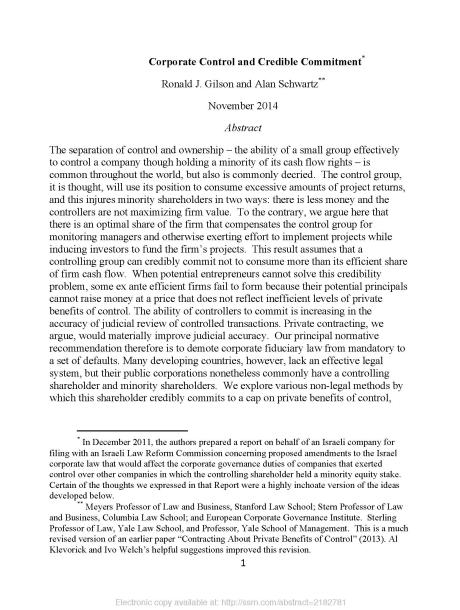
Contracting About Private Benefits of Control
Abstract
The separation of control and ownership ? the ability of a small group effectively to control a company though holding a minority of its cash flow rights ? is common throughout the world, but also is commonly decried. The control group, it is thought, will use its position to acquire pecuniary private benefits ? to take money ? and this injures minority shareholders in two ways: there is less money and the controllers are not maximizing firm value. To the contrary, we argue here that pecuniary private benefits may compensate the control group for monitoring managers and otherwise exerting effort to implement projects. There is an optimal level of pecuniary private benefit consumption, we show, that maximizes the control group?s profits, induces constrained efficient controller effort levels and compensates public shareholders for funding the firm?s projects. This result assumes that a controlling group can credibly commit not to consume more than these efficient private benefit shares. When potential entrepreneurs cannot solve this credibility problem, some ex ante efficient firms fail to form because their potential principals cannot raise money. The ability of controllers to commit is increasing in the accuracy of judicial review of controlled transactions. Private contracting, we argue, would materially improve judicial accuracy. Our principal normative recommendation therefore is to demote corporate fiduciary law from mandatory to a set of defaults.








